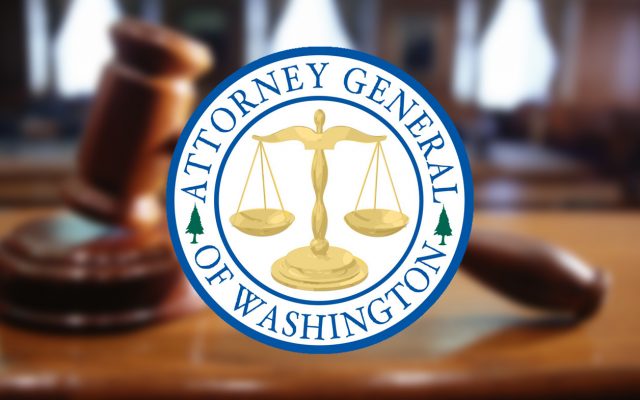Taxpayers who paid to use TurboTax may get refunds

Attorney General Bob Ferguson announced on Wednesday that tax preparation software company Intuit will return more than $3.75 million to 121,102 Washington taxpayers.
According to a release, Washingtonians who paid to electronically file their returns with Intuit’s TurboTax software could be receiving refunds because the company failed to inform them that they were eligible to e-file for free through the Internal Revenue Service (IRS).
Between 2016 and 2018, more than 127,000 tax returns were filed through Intuit’s paid software despite being eligible for free electronic filing through the IRS for tax returns with incomes up to $73,000.
Eligible Washington taxpayers will receive approximately $30 for each year they paid Intuit to file their returns through TurboTax. Some Washington taxpayers are eligible for restitution for multiple years.
In addition to the restitution to Washington taxpayers, the resolution, to be filed in King County Superior Court, requires the company to notify consumers when they are eligible to file for free through the IRS, as well as to disclose the limitations on who is eligible to use its own free tax filing software.
“I will continue holding corporate interests accountable when they deceive Washingtonians into paying millions of dollars for a free service,” Ferguson said. “Intuit’s deceptively earned profits will return to hardworking Washington families to help pay for groceries, car payments and other needs.”
Residents will not need to do anything to receive restitution. A claims administrator will reach out to impacted Washington taxpayers identified in Intuit’s records and arrange payment owed.
For more information on who is eligible to electronically file their tax return for free through the IRS, go to https://www.irs.gov/filing/free-file-do-your-federal-taxes-for-free.
From Attorney General’s Office:
The Attorney General’s Office began investigating Intuit in 2019, after ProPublica published articles outlining some of Intuit’s alleged conduct. Other states joined the investigation the following year.
The states allege that Intuit deceptively marketed its TurboTax Free Edition by failing to adequately disclose the eligibility requirements to use its free product, which were more narrow than the standards used by the IRS. They also accuse Intuit of failing to inform consumers when they were still eligible to file for free through the IRS Free File program, even though they were not eligible to use TurboTax’s Free Edition software. Instead, Intuit prompted these taxpayers to pay for its premium software and continue with their return.
Ironically, Intuit also supplied the software used for the IRS’ government-sponsored free tax filing program until last year.
TurboTax based a taxpayer’s eligibility for its free product on whether they were filing a “simple” tax return. Intuit defined a “simple” return as one that can be filed on a Form 1040 with no attached schedules. However, eligibility for free filing through the IRS is based solely on the taxpayer’s income, regardless of what forms or schedules the IRS requires them to complete for their return.
For example, taxpayers who made student loan payments, or performed contract work where the employer didn’t take taxes out of their pay would need to attach additional schedules to their returns, and would not be eligible to use TurboTax’s free product. However, based on their income level alone, they may still be eligible to electronically file for free through the IRS.
From 2016 to 2018, about 70 percent of taxpayers were eligible for the IRS Free File program. Due to its definition of “simple” tax returns, only about a third of taxpayers were eligible to file a return for free with Intuit’s TurboTax Free Edition.
When TurboTax determines a taxpayer no longer qualifies for its free product, it notifies them that they must upgrade to its paid version — called a “hard stop.” Intuit failed to disclose at these hard stops that a consumer may be eligible for IRS Free File even if they were not eligible for the TurboTax Free Edition.
The states also accuse Intuit of actively attempting to steer taxpayers away from the IRS Free File program. For example, in 2017 and 2018, Intuit engaged in a variety of ploys, such as manipulation of web traffic and search terms used to look for IRS Free File to actively steer consumers toward TurboTax’s own Free Edition. Intuit changed these deceptive business practices in response to media reports.
Resolution details
As part of the resolution, Intuit must return $3,753,350 to 121,102 Washington taxpayers who paid for its software when they were eligible to file their federal taxes for free with the IRS Free File program. The payment is part of a $141 million nationwide resolution with all 50 states and Washington, D.C.
A claims administrator will reach out to impacted Washington taxpayers identified in Intuit’s records. Washingtonians do not need to do anything to receive restitution. Some Washington taxpayers will be eligible for restitution for multiple years. Eligible Washington taxpayers will receive about $30 for each year they were impacted.
In addition to paying more than $3.75 million to Washington taxpayers, Intuit must institute significant corporate reforms as part of the resolution. Among other requirements, Intuit must:
-
- Stop misrepresenting that consumers must upgrade to its paid product if they are eligible to file for free
- Accurately disclose in its marketing materials, videos and on its websites that, at a minimum, limitations apply to the eligibility for its free product, or, where possible, disclose the limitations on a consumer’s ability to use the free product and that not all taxpayers qualify for its free product
- Disclose at the earliest point possible during filing in its free edition if a consumer does not qualify for the free edition
- Stop prompting consumers to upgrade to Intuit’s paid tax product if they are eligible to use the free product
You Might Also Like



